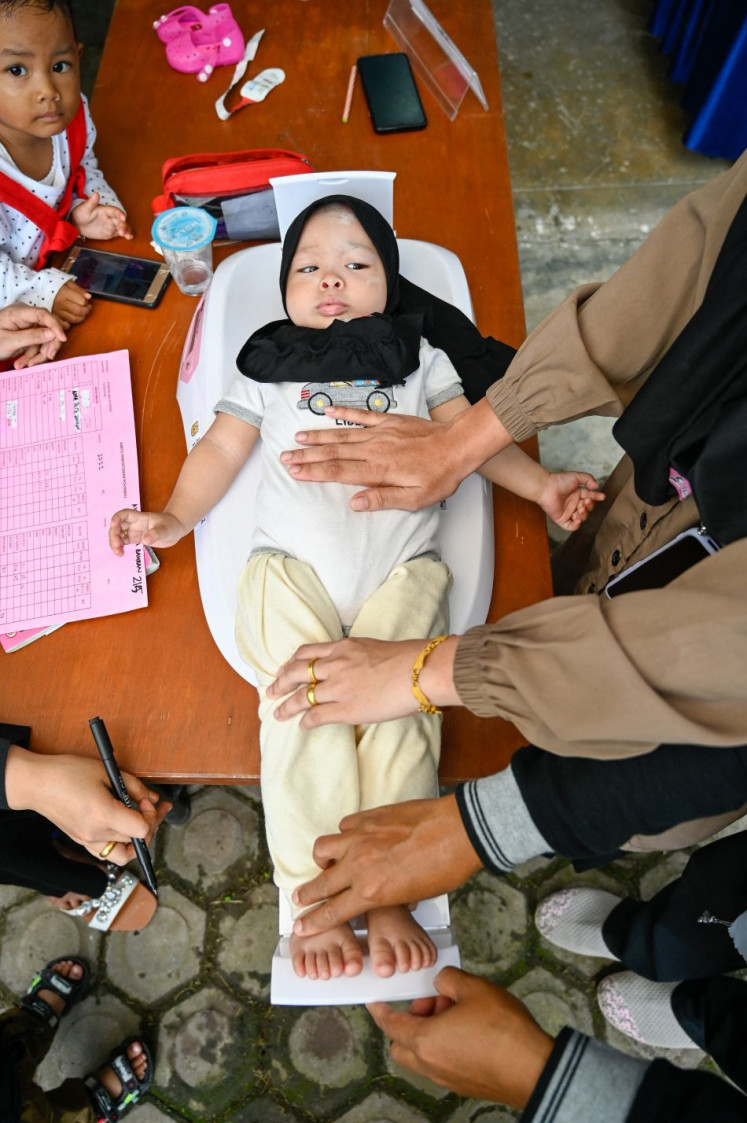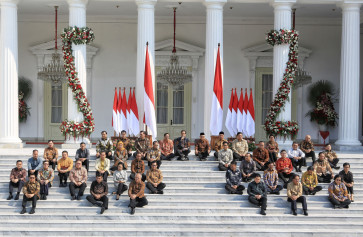Popular Reads
Top Results
Can't find what you're looking for?
View all search resultsPopular Reads
Top Results
Can't find what you're looking for?
View all search resultsAnalysis: Big government means bigger budget. Can Prabowo deliver?
Change text size
Gift Premium Articles
to Anyone
P
resident-elect Prabowo Subianto is pushing for a big government for when he takes over the helm in October, but it is not so much because he has ambitious big programs to run, but more because he needs to parcel out cabinet posts to political parties, individuals and institutions that helped him win the February election. As if that is not enough, Prabowo is inviting some of the political parties that had supported rival candidates in the race to join his ruling coalition, so he has even more strategic government jobs to give out.
The House of Representatives has started deliberation on legislation that would allow Prabowo to expand the number of ministers in his cabinet from the maximum 34 set under the current law. His camp has mentioned a figure of 40 or 41 without providing details about what new ministries would be created. The bill for this legislation is guaranteed a swift passage since many of the factions in the House will be among the beneficiaries of the planned cabinet expansion. The draft of the revision to the 2008 Ministries Law, submitted this month, quickly made it into the House’s legislative agenda. House members are optimistic the bill would be passed before the Oct. 20 presidential inauguration.
Parties and individuals are already jockeying for cabinet positions, publicly touting names they think should be included, although it is more than five months before the inauguration. Prabowo, who has the sole constitutional prerogative, is not likely to be rushed. Besides political parties, state institutions like the Indonesian Military (TNI) and the National Police, and pressure groups like the Nahdlatul Ulama (NU), Indonesia’s largest Islamic mass organization, will also be claiming their rewards.
And there is outgoing President Joko “Jokowi” Widodo, to whom Prabowo is indebted for mobilizing people to vote for him in February. Jokowi already has his 36-year-old son, Gibran Rakabuming Raka, as vice president-elect, but given his power ambitions, he is likely looking for an even more strategic role in the next government.
Prabowo is still working to expand his coalition to bring in more parties besides those that had supported his presidential bid: his own Gerindra Party, the Golkar Party, the Democratic Party and the National Mandate Party (PAN) and smaller parties like the Moon and Crescent Party (PBB) and the Indonesian Solidarity Party (PSI), which did not meet the threshold of parliamentary votes to get representation in the House. Among parties that supported rival candidates, the NasDem Party and the Nation Awakening Party (PKB) are almost certain to join the ruling coalition, as is the Islamist United Development Party (PPP), although it failed to win House seats this time around.
The big prize for Prabowo is if he could enlist the Indonesian Democratic Party of Struggle (PDI-P). He will get his answer on May 26 when PDI-P matron Megawati Soekarnoputri is expected to announce her decision whether to join Prabowo or play the opposition role. The party won the most votes in the legislative elections and could boost Prabowo’s hands in the House, although without it, he already has a controlling majority. If the PDI-P joins, the Prabowo coalition will control more than 90 percent of House seats. The Islamist Justice Welfare Party (PKS) will be the sole opposition party in the House.
What’s More



















